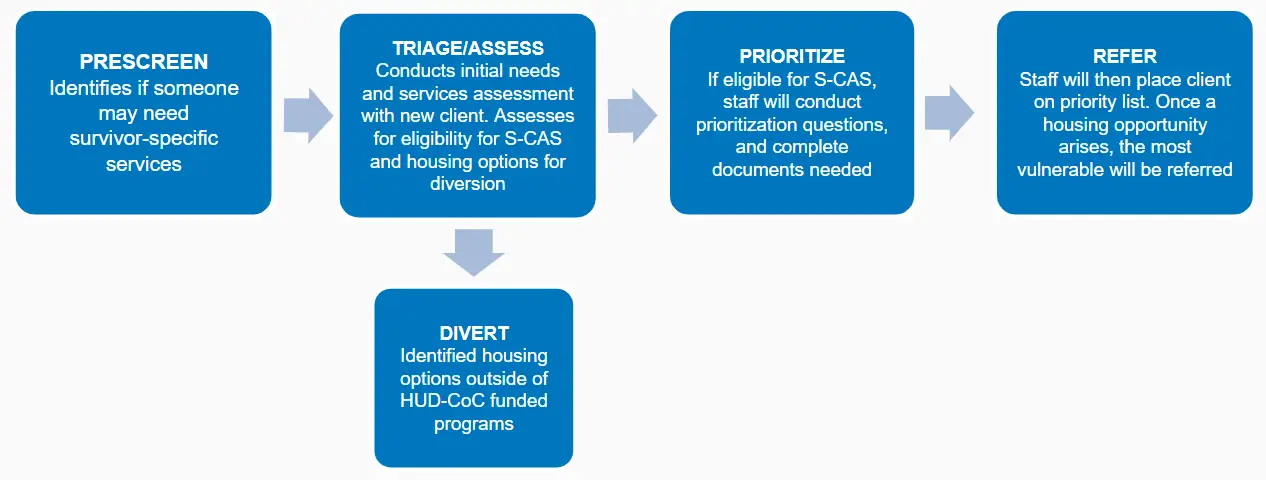
RESOURCES AND INFORMATION FOR and about Coordinated access system (cas) pROVIDERS
Sacramento Steps Forward (SSF) is not a direct service provider. Rather, our role within CAS is to increase access to shelter, housing, and services through:
The Frontline Learning Collaborative (FLC) is a recurring meeting for frontline staff in direct homelessness services, facilitated by Sacramento Steps Forward to strengthen resource sharing, relationship building, and collaborative problem-solving within the homelessness response system.
These meetings occur on the fourth Thursday of every month, 10::00 a.m. – 12:00 p.m., at the Rose Family Creative Empowerment Center (7000 Franklin Blvd, Ste 1020, Sacramento, CA).
For updates and invites, sign up for our Frontline Learning Collaborative email list.
To learn more about the FLC or inquire about presenting, contact cas@sacstepsforward.org.
The CAS Provider Forum is a recurring meeting for the homelessness response system community (including providers, partners, frontline workers, and more) to provide feedback and suggestions regarding CAS. These meetings occur every third Wednesday of the month from 2:00 p.m. to 3:00 p.m. at this link.
SSF regularly shares opportunities for to submit proposals, or “Requests for Proposals” (RFPs), from our partners around the Sacramento region. These are a chance for providers to meet needs in the community while expanding their funding for their efforts within the homelessness response system. Find recent RFPs here, and check back regularly for updates,
SSF hosts regular case conferencing to discuss and coordinate housing efforts and plans for those experiencing homelessness. These meetings are a great opportunity to collaborate with other providers and share resources.
The first step to becoming a CAS provider is becoming registered as a new HMIS user (if you are not already in the system). To request new user access for your agency, please see this page. For additional questions on becoming a CAS-integrated provider, please email cas@sacstepsforward.org
Shelter
Emergency shelters provide safe, temporary housing for individuals and/or families who have no alternative safe housing options while they are supported in obtaining permanent housing or access to other appropriate assistance, such as treatment. Shelters serve people who have neither a safe home nor the means to obtain other safe permanent or temporary housing.
Emergency shelters may serve specific populations (e.g., families with children, single adults, transition age youth), in congregate or non-congregate facilities, and do not require occupants to sign leases or occupancy agreements. Emergency shelters seek to have low barriers to entry (without extensive requirements or rules) and, at a minimum, provide basic needs, housing-focused services, and linkage to voluntary mainstream services.
Congregate
Provides accommodations in a way where residents share their living space.
Non-Congregate
Provides accommodations in a way where residents have their own private space. Non-congregate shelter is generally provided via motel rooms.
Shelter Types
Individual: Adult individuals
TAY: Transitional-age youth (18-24 years old)
Family: Households with at least one minor child or dependent
Note: Trained service providers with Homeless Management Information System (HMIS) access can now directly conduct shelter assessments on behalf of clients to place them on a shelter waitlist.
You can find the shelter information collection form at the link below to help facilitate appropriate referrals.
Problem-solving access points (PSAPs) are trained agencies that support households in identifying alternative housing options and community support to resolve their housing crisis. This could include mediation, conflict resolution, connections to mainstream resources, and limited financial assistance that directly results in housing being secured. Four designated PSAPs receive referrals from 211 and can provide housing location services for households with vouchers or identified housing.
Anyone at-risk of or experiencing homelessness, or who is fleeing or attempting to flee domestic violence, sexual assault, or human trafficking and meets income requirements, is eligible for problem-solving services. Additional verification documents (proof of income, eviction filings, etc.) are required for financial assistance.
You can find current forms and documents for PSAP providers at the link below.
Permanent Housing (PH)
Permanent Housing (PH) is a community-based housing model, the purpose of which is to provide housing without a designated length of stay. PH program participants must be the tenant on a lease (or sublease) which must:
Permanent Supportive Housing
Permanent Supportive Housing (PSH) is permanent housing in which housing assistance (e.g., long-term leasing or rental assistance) and supportive services are provided to assist households with at least one member (Head of household) with a disability in achieving housing stability.
Rapid Rehousing (RRH)
Rapid Rehousing (RRH) provides short-term (up to three months) and medium-term (4-24 months) tenant-based rental assistance and supportive services to households experiencing homelessness. Length of assistance is based upon need and evaluated on a month to month basis.
Transitional Housing (TH)
Transitional housing (TH) is designed to provide homeless individuals and families with the interim stability and support to successfully move to and maintain permanent housing. Transitional housing may be used to cover the costs of up to 24 months of housing with accompanying supportive services. Program participants must have a lease (or sublease) or occupancy agreement in place when residing in transitional housing.
You can find a full list of up-to-date CAS housing provider training recordings on this YouTube playlist.
Effective 7/5/2023, the Coordinated Entry System Committee Co-Chair members and the CoC Executive Committee voted to amend the COVID-19 prioritization schema to remove the VI-SPDAT scoring process as a prioritization factor for RRH and PSH referrals. The VI-SPDAT is known to cause racial inequities, specifically when determining who gets into PSH and RRH. The removal of the VI-SPDAT will improve housing placements into RRH/ PSH and address racial inequities experienced by BIPOC, thereby supporting our goal of equitably and efficiently prioritizing individuals and families entering the coordinated access system.
The CoC has been tasked with developing a replacement tool to the VI-SPDAT. When/if this tool is adopted it will replace the VI-SPDAT assessment and a new prioritization schema will be developed.
Individuals entering the Coordinated Access System will be prioritized based on the following prioritization factors;
Tiebreaker (applies to all levels): Length of time homeless (Longest to shortest)
Request current forms and documents for housing providers at cas@sacstepsforward.org.
The Survivor Access System (S-CAS) is a specialized segment of the Coordinated Access system in which providers:

You can find a full list of up-to-date S-CAS video training recordings on this YouTube playlist.
Forms and Related Documents
Navigators and providers can determine eligibility and inform the prioritization for clients seeking survivor system resources.
Download a list of S-CAS partners here.
Download the Survivor CAS overview here.
Request current forms and documents for housing providers at cas@sacstepsforward.org.
The Coordinated Access Navigator (CAN) Team is a set of trained navigators who provide navigational support to clients within the Coordinated Access System, guiding them through the next steps after system access.
Sacramento Steps Forward is a private, non-profit 501(c)(3) charity serving the Sacramento region. EIN# 27-4907397
Sign up to receive occasional invitations, helpful resources, and system updates—no spam, just support.